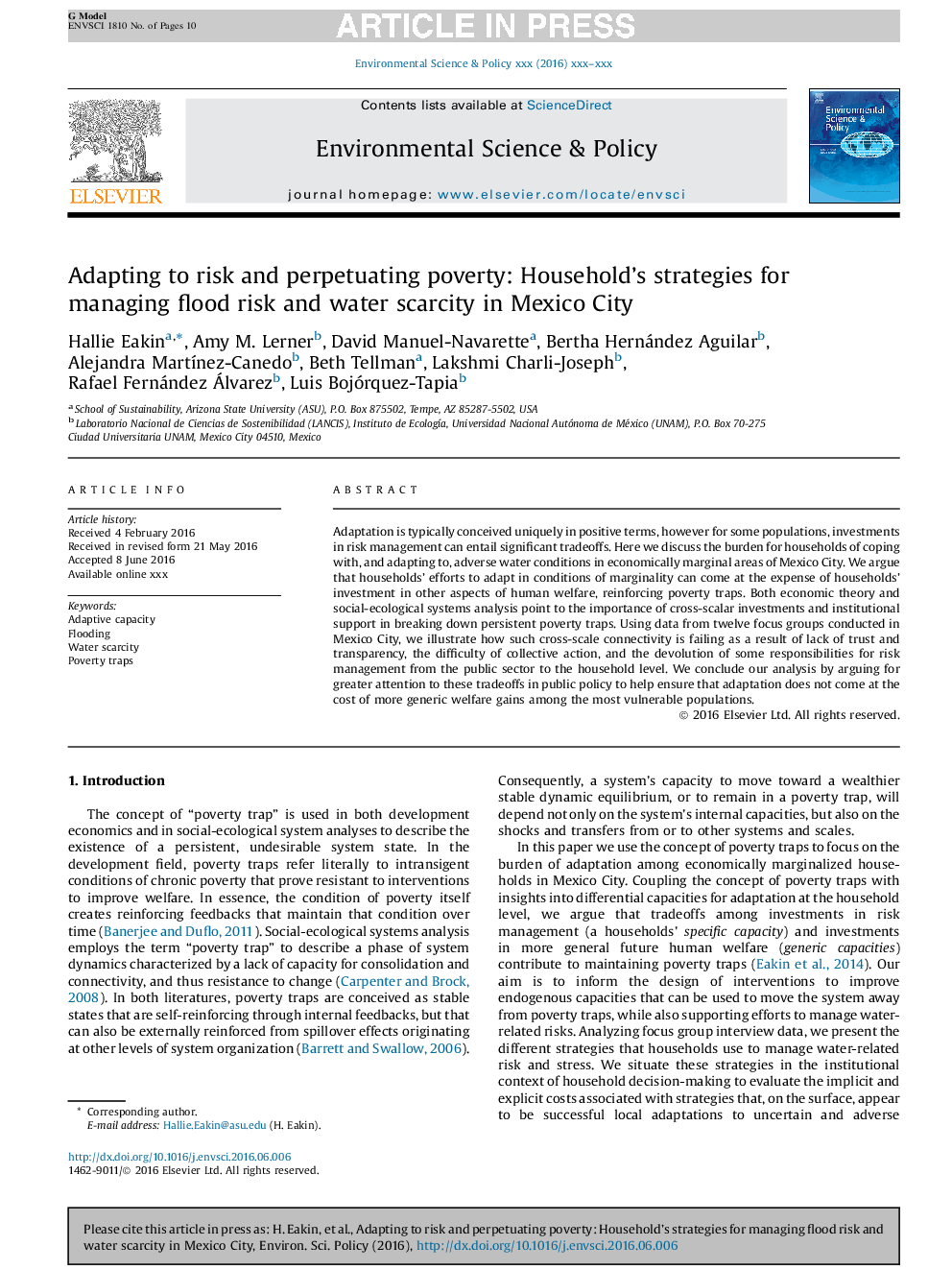| Article ID | Journal | Published Year | Pages | File Type |
|---|---|---|---|---|
| 7466407 | Environmental Science & Policy | 2016 | 10 Pages |
Abstract
Adaptation is typically conceived uniquely in positive terms, however for some populations, investments in risk management can entail significant tradeoffs. Here we discuss the burden for households of coping with, and adapting to, adverse water conditions in economically marginal areas of Mexico City. We argue that households' efforts to adapt in conditions of marginality can come at the expense of households' investment in other aspects of human welfare, reinforcing poverty traps. Both economic theory and social-ecological systems analysis point to the importance of cross-scalar investments and institutional support in breaking down persistent poverty traps. Using data from twelve focus groups conducted in Mexico City, we illustrate how such cross-scale connectivity is failing as a result of lack of trust and transparency, the difficulty of collective action, and the devolution of some responsibilities for risk management from the public sector to the household level. We conclude our analysis by arguing for greater attention to these tradeoffs in public policy to help ensure that adaptation does not come at the cost of more generic welfare gains among the most vulnerable populations.
Related Topics
Physical Sciences and Engineering
Energy
Renewable Energy, Sustainability and the Environment
Authors
Hallie Eakin, Amy M. Lerner, David Manuel-Navarrete, Bertha Hernández Aguilar, Alejandra MartÃnez-Canedo, Beth Tellman, Lakshmi Charli-Joseph, Rafael Fernández Álvarez, Luis Bojórquez-Tapia,
